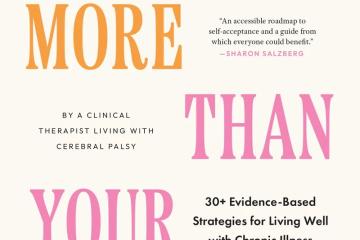Navigating CP and Depression at the Same Time
There is insufficient research on adults living with cerebral palsy, (as referenced in my previous blog post on cerebral palsy and adulthood). Although there is a paucity of studies examining mental health in this population, medical researchers have speculated that the rate of depression is three to four times higher in people with disabilities such as CP than it is in the general population.
Although there is a fair amount of research and services available for people with intellectual disability and mental illness—which is often coined, a “dual diagnosis”—there are a very limited number of studies conducted on how a physical disability can affect a person’s mental health.
Because of the multiple intersectional identities of any person, it is very difficult to determine if a mental illness directly relates to the person’s disabilities. Just like I can’t separate my identity as a woman and as an Asian-American from my lived experiences, I also can’t isolate the fact that I have CP from them either. However, it’s not just one aspect of my identity that factors into my mental health, but rather an accumulation of being an Asian-American woman with a disability that has colored my perception of life.
When I was a junior in college, my mental wellbeing sunk down to an all-time low. I'd never been so unmotivated nor had such a distaste for my mere existence than during that period of my life. But I didn’t “get” it. I didn’t get it because I couldn’t see “it.” I wanted to break one of my limbs just to make the excruciating pain I was feeling into something tangible, something I could put my finger on. I didn’t understand why it was becoming increasingly harder to fall asleep at night despite my exhaustion, but it was impossible to get out of bed in the mornings.
I finally sought help from a mental health professional midway through the school year. And I’d received another diagnosis, the first and only one since my CP diagnosis: clinical depression and generalized anxiety disorder.
My depression and anxiety are, by far, the hardest things I’ve ever had to deal with. They make the obstacles I’ve faced because of my cerebral palsy seem like nothing next to them. That is saying a lot. I’ve been able to overcome obstacles from my physical disability and have kept a strong mindset during the process. However, with my depression and anxiety, only the word, “impossible,” entered my mind, a word that I thought I had eliminated from my vocabulary as a young girl.
The main difference between my diagnosis of cerebral palsy and mental illness is that one is visible while the other is not. A strong mindset had always gotten me through my daily life with CP, but my depression and anxiety affected my mentality, which was the only thing I was conditioned to depend on. Now, since my mental health had been affected, it was a lot harder to see the light at the end of the tunnel.
However, there are some ways that my diagnosis of CP and mental health are related. Because my CP does not always give me full control of my body, my anxiety manifests itself as obsessive-compulsive disorder tendencies that make me feel like I have control over some parts of my life. For example, I like to have certain things in my apartment in a certain way, and I obsess over it until it is the way I want it. Another example is that when I was using my wheelchair to navigate NYC, I had to check the status of MTA subway elevators at least five times before I was able to leave home because I was paranoid that I would get stuck on a subway platform with an out-of-service elevator.
It was hard for me to find a mental health professional who understood the nuances of having a physical disability. And I am not the only one who feels like there are not enough therapists who are trained to treat patients like me. Dr. Amy Margolis is a neuropsychologist at Columbia University Medical Center’s Department of Psychiatry. Although her specialty is in assessing and treating patients with learning disabilities and other conditions that interfere with academic performance, she believes, overall, there is a shortage of therapists who are trained to treat patients with disabilities.
Dr. Margolis explains that it is important that people with disabilities also pay attention to their mental wellbeing: “Oftentimes they are regulated to other therapists — like if you have a speech impediment, you see a speech therapist, if you have a motor impediment, you should go to an occupational therapist or a physical therapist. But no one is paying attention to the emotional aspect of having [a disability]."
The American Psychological Association is well aware of this shortcoming of the industry. “Unfortunately, while psychologists receive extensive training in treating mental health disorders, they rarely receive adequate education or training in disability issues. Few graduate psychology training programs offer disability coursework. This paucity of training is a major barrier to providing effective services to clients with disabilities. Limited training and experience may leave many psychologists unprepared to provide clients with disabilities with professionally and ethically sound services, including the provision of assessments and interventions.”
I am very fortunate that I found the perfect therapist and we’ve been making tremendous progress over the past five years. I’ve learned the importance of maintaining holistic wellbeing — physical, mental, and spiritual — and each aspect plays an equally important role.
As the stigma towards mental illness continues to lessen in society, I hope the CP community
along with the overall disability community, will also become cognizant of the psychological wellness of individuals with disabilities. One way to achieve this, specifically within the CP world, is to devote more time and attention to adults with “pediatric” disabilities since all kids eventually grow up.








